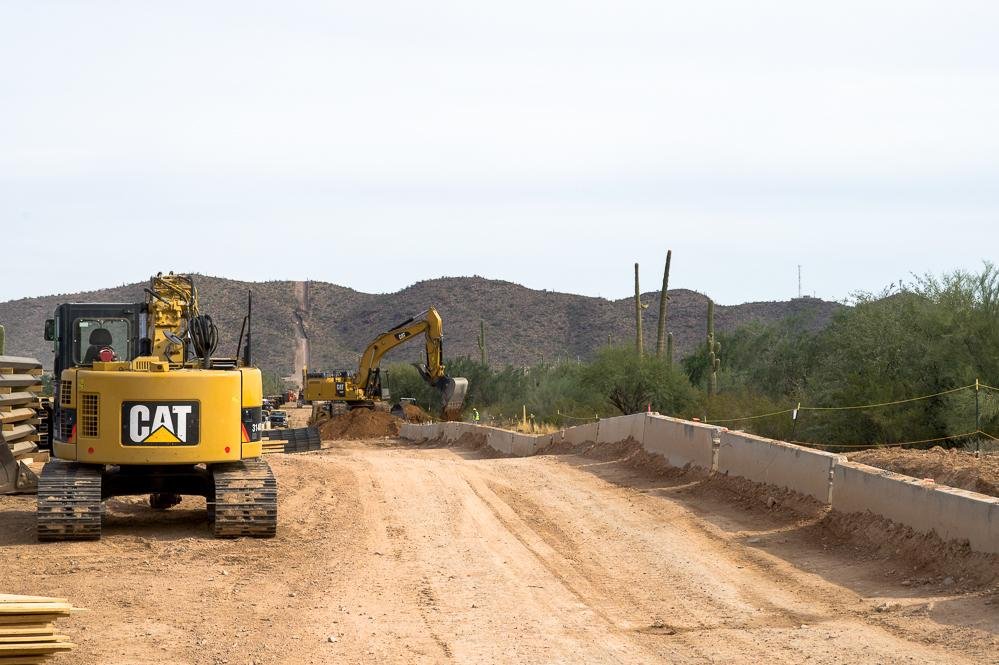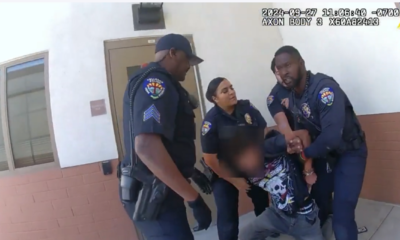border
Trump’s Billions for Border Security: Local Residents Struggle with Basic Needs

Amid ongoing debates surrounding border security, communities along the U.S.-Mexico border face deep-seated challenges that remain largely overlooked. Federal investments in enforcement far surpass the resources allocated to essential public services in these regions, resulting in stark inequalities. Many areas, particularly in Texas and Arizona, struggle with inadequate access to clean water and health care, making the government’s focus on security initiatives feel misplaced.
Since taking office, President Trump invoked emergency powers to secure billions for border security measures, advocating for an additional $175 billion for immigration enforcement. Future grants aimed at enhancing police patrols and constructing new walls will inject cash into border towns. However, residents like Sandra Fuentes from Texas and Jose Grijalva, mayor of Douglas, Arizona, underline that their fundamental concerns revolve around immediate needs—such as drinking water and hospitals—rather than increased security.
In Texas, approximately 30,000 residents are without reliable access to drinking water. Similarly, over 200,000 individuals in southeastern Arizona live hours away from a full-service hospital. These conditions starkly contrast the substantial federal and state funding focused on border security. “The border security issue takes up all the oxygen…leaving very little space for other priorities, specifically water and wastewater infrastructure,” said state Rep. Mary González from El Paso County.
A striking example of this disconnect is evident in Del Rio, Texas, where families have gone decades without running water. Cierra Flores, a local resident, shares that on some days, her household’s water supply runs out, forcing her family to rely on neighbors with more reliable wells. “It’s frustrating that we don’t have basic resources…in a place that knows it doesn’t rain in the summer,” she states. Val Verde County, where Del Rio is located, has long battled to improve water access, but challenges remain, with over 4% of the population lacking running water.
Texas officials acknowledge the water crisis, with Gov. Greg Abbott’s administration proposing substantial funding for infrastructure improvements. Nonetheless, many worry that these plans may not be enough as the demand for resources continues to outpace available funding. According to Olga Morales-Pate, “infrastructure needs often exceed available funds,” leading to competition among communities for limited resources.
In Arizona, the situation is similarly dire. Douglas lost its only hospital nearly a decade ago, forcing residents to travel significant distances for medical care. Nina Nelson recounts the desperation faced during a medical emergency for her son, who required immediate attention not available locally. “It’s a game of ‘How much time do I think I have?’” she explains, highlighting the dire need for better health care access.
While Arizona has appropriated millions for border security, critics argue that funds would have been better spent addressing local issues rather than constructing ineffective barriers. “Those resources could have gone into the community,” Grijalva states, advocating for investments that support social infrastructure instead of merely enhancing security. With poverty rates in Douglas soaring and resources dwindling, finding a pathway to recovery becomes ever more critical.
The voices of border communities are often lost amidst political debates over immigration and security. Residents yearn for solutions that address their basic needs rather than the continuous focus on enforcement. As state and federal governments allocate funding, advocates hope that policymakers will shift their priorities to ensure a livable environment for those who call this region home.


















